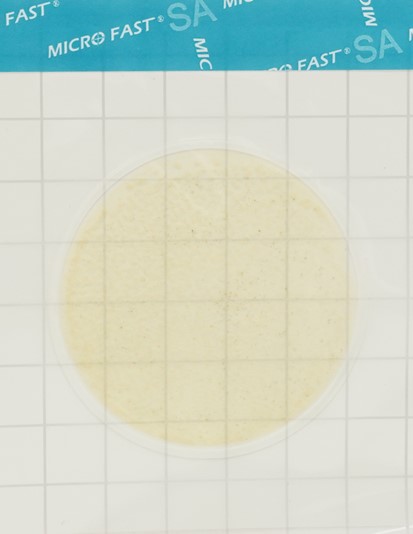Spanish veterinarians are studying alternatives to antibiotics in equine breeding for the treatment of endometritis.
The Equine Reproduction and Spermatology Research Group at the University of Extremadura ( UEx ) is working to determine whichbacteria naturally occurring in the uterus of healthy mares to understand how this microbiota interacts with the immune system and collaborates with it to protect against infections.
Infectious endometritis, or uterine infection, is one of the leading causes of infertility in mares. In addition to disrupting pregnancy, it can lead to embryonic death and abortion, which has economic consequences for the equine industry.
Until recently, it was believed that the mare's uterus was a sterile, bacteria-free environment. However, a team of researchers from the Faculty of Veterinary Medicine at the University of Aix-en-Provence has demonstrated that the uterus of mares and donkeys has a unique microbiota, similar to that of females and other animal species, and that one of its functions is to protect against the penetration of pathogenic bacteria.
In this regard, researchers from the University of Aix-en-Provence (UEX) discovered that the uterine microbiome of healthy mares and mares with endometritis differs significantly in composition and diversity. Furthermore, they noted the presence of certain bacterial species traditionally considered pathogenic. In a uterus with a balanced microbiome, these bacteria are present in very low concentrations, challenging the traditional notion of uterine sterility.
The research group is currently analyzing the relationship between the microbiota and the immune system of the mare's uterus, which is of great interest for human reproduction, with the aim of improving the diagnosis and treatment of endometritis.
Thus, the research group led by Cristina Ortega Ferrusola recently received a second project in this line of work: the MIUMEEE project, funded by the Ministry of Science, Innovation and Universities, which strengthens and consolidates the group's achievements in this area.
A NEW THERAPEUTIC APPROACH
The aim of a new research project is to study how the uterine microbiota influences local immune mechanisms and how its alteration can trigger infertility.
Through this project, researchers hope to improve the diagnosis of mares with this disease and develop new alternative treatments to antibiotics that restore and maintain microbial balance.
A new therapeutic approach through the development of probiotics (beneficial live bacteria) and postbiotics (bacterial products that inhibit the growth of pathogens and modulate the immune system).
"Our goal is not only to better understand endometritis but also to lay the foundation for new antibiotic- free treatments that respect the uterine's natural balance. We must consider the uterine microbiota as our ally," says Ortega Ferrusola.
This study is in line with the global fight against antibiotic resistance established in the National Plan to Combat Antibiotic Resistance (PRAN), to which were added the restrictions on the use of antibiotics in veterinary medicine introduced by Royal Decree 666/2023, which regulates the distribution, prescription, dispensing and use of veterinary medicinal products in Spain.
"More than 60% of mares with fertility problems who present to the University of Aix Equine Reproduction Center suffer from infectious endometritis," says Ortega Ferrusola. "Currently, treatment for uterine infections in this species involves antibiotics. However, the emergence of resistant strains and restrictions on the use of these drugs in veterinary medicine complicate treatment and management," the researcher notes.
BIOMARKERS TO IMPROVE DIAGNOSTICS
Diagnosis of endometritis is challenging, and in subclinical cases the condition may go undetected in many mares.
Given that the results of traditional diagnostic methods are not always clear, the group is studying new biomarkers (immunological, protein and bacterial) in uterine washings and biopsies to improve diagnostics.
The project thus combines various molecular techniques known as "omics," which enable the identification of bacteria through sequencing, as well as their proteins and metabolites. These innovative methods will help us understand the bacteria present in the uterus and their impact on the environment.
"The goal is also to better understand the biological processes that influence fertility. Furthermore, this project aims to identify bacteria with postbiotic potential that can enhance the immune response and help maintain microbial balance in the uterus of mares," Ortega emphasizes.
According to the second 2022 study on the impact of the equestrian sector in Spain, published by the Ministry of Agriculture, Fisheries and Food, the equestrian sector has grown by 39% over the last decade.
Horse breeding has doubled, "and horse breeding covers many areas of activity: leisure, culture, sport , hippotherapy, etc.," explains a UEx researcher.
The study involved mares with reproductive problems who had been referred to the Equine Reproduction Centre - UEx Veterinary Clinical Hospital for diagnosis and treatment, with the assistance of CENSYRA (Animal Selection and Reproduction Centre) of the Regional Government of Extremadura.
Recently, the Equine Reproduction and Spermatology Research Group signed a collaboration agreement with the Yeguada Cartuja National Equine Reference Center, which will increase the number of mares tested, both healthy and those with fertility problems, thereby contributing to the development of equine research.
In 2026, the Equine Reproduction Center at the Faculty of Veterinary Medicine of the University of Extremadura will celebrate its 20th anniversary. Over these two decades, the center has established itself as an international hub thanks to its research, over 120 scientific publications, several patents, and doctoral theses defended through publicly funded competitive projects.
This work has contributed to the transfer of knowledge to the livestock sector, improving fertility diagnostics and assisted reproduction techniques, which has given impetus to the development of equine breeding and strengthening the sector in Extremadura.
Read together with it:
- Инновации и сотрудничество в птицеводстве: Птицефабрика Чайковская на семинаре в КитаеСреди обсуждаемых тем были современные методы кормления, стратегии улучшения здоровья животных и переход к безантибиотиковым технологиям. Акцент был сделан на снижении затрат на кормление для повышения конкурентоспособности в условиях глобального рынка. Также участники посетили завод Menon, где прошла экскурсия по современным производственным мощностям. Генеральный директор компании Мисма подчеркн...
- An HSE expert reported on the "evolution of inequality" in access to healthcare.An HSE researcher analyzed Russians' access to healthcare over a ten-year period. In 2021, the influence of financial factors became noticeable for the first time: low income reduces the likelihood of visiting a DOCTOR.Over the ten years from 2011 to 2021, the number of Russians requiring medical care but not receiving it remained virtually unchanged, according to a study by Lyudmila Zasimova, hea...
- Rosselkhoznadzor has banned meat imports from two Belarusian enterprises due to violations.In addition, three other Belarusian producers are now subject to strict laboratory monitoring due to initial deviations: azithromycin was found in poultry MEAT from Druzhba Poultry Farm, and the pesticide imidacloprid was found in honey from Pchalyar Polachchyny Farm. Powdered MILK from Luninetsky Dairy Plant was also found to containcoli bacteria . These measures were taken at the request of the ...
- Pharmaceutical companies see a threat to EU security due to bacteria in UkraineAntibiotic-resistant superbugs have been detected in Ukrainian soldiers since the beginning of the conflict, and now they pose a threat to Europe, according to a foundation developing antibiotics.The Ukrainian conflict threatens Europe with antibiotic-resistant "superbugs," said Henry Skinner, CEO of the AMR Action Fund, which specializes in investing in antimicrobials. His article was published o...
- Роспотребнадзор подводит итоги контроля мясной продукции в Тамбовской области за 2025 годПоложительные аспекты: Не было выявлено нарушений санитарно-химических показателей, присутствия патогенных микроорганизмов, ГМО, паразитов, антибиотиков и радиационного загрязнения. Проблемные моменты: Отмечается ухудшение по физико-химическим показателям — 5,88% образцов не соответствует стандартам, по сравнению с 1,5% в 2......
- Ученые узнали о способности прививки от COVID продлевать жизнь при ракеВакцины от коронавируса на основе мРНК продлевают жизнь пациентам с онкологией на последних стадиях, выяснили ученые из США. Препараты активизируют иммунную систему. В итоге вакцинированные прожили почти в два раза дольше обычного Вакцины от коронавируса продлевают жизнь пациентам с онкологией. К такому выводу пришли исследователи из американского центра MD Anderson в Хьюстоне. Результаты исследов...
- In the third quarter, the Development Bank supported nine new projects in five regions of Belarus.October 31, MINSK . In the third quarter, the Development Bank supported nine new projects in five regions of Belarus, the bank's press service told BelTA. Over the past six months, 22 new facilities in agriculture, industry, transport, education, and medicine were commissioned with the bank's support. In the third quarter, nine more effective projects were launched in five regions of the country....































































